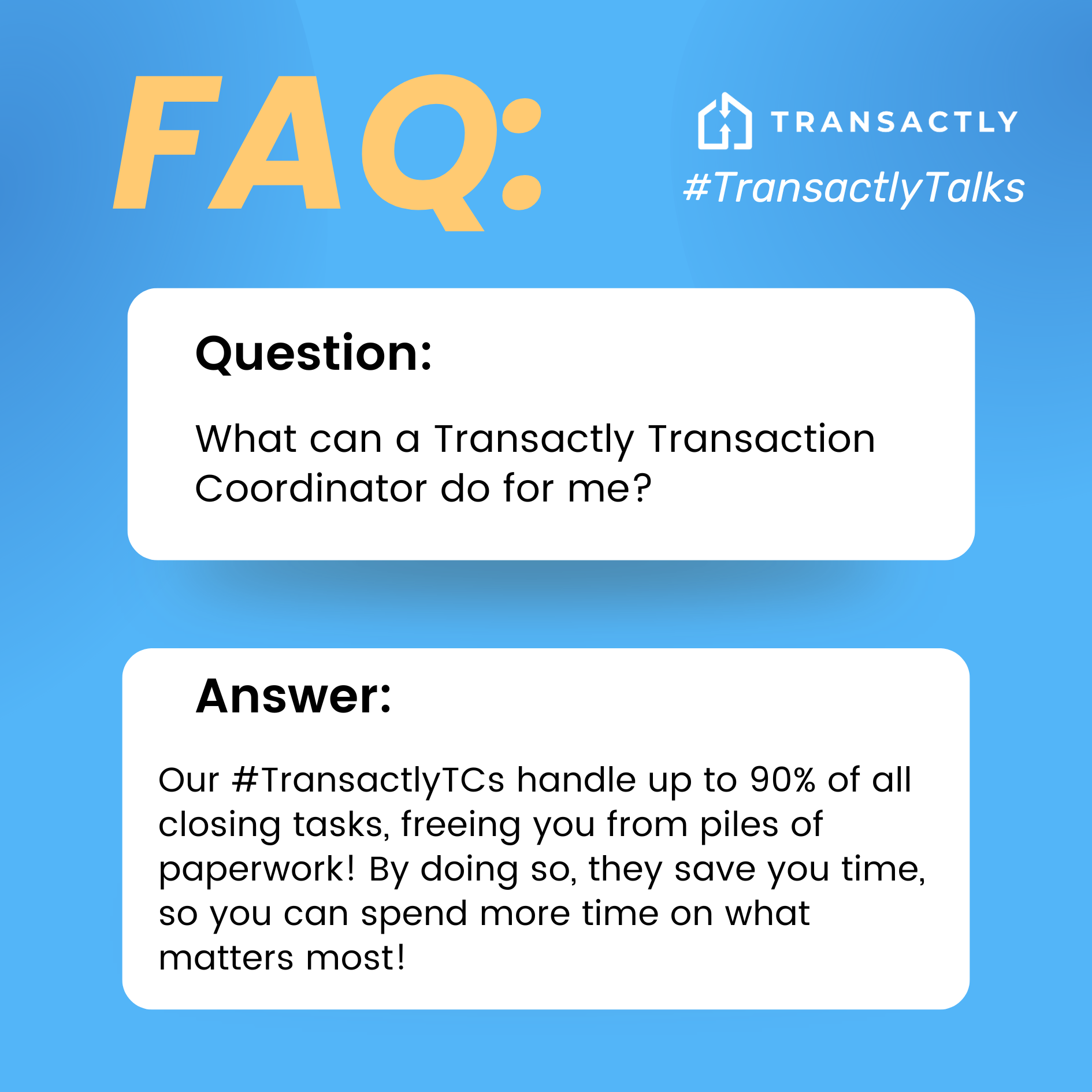Real estate transactions are intricate puzzles with countless pieces that need to fit together perfectly.
Whether you're a seasoned real estate agent or just starting out, managing these details can be overwhelming.
Enter the transaction coordinator, your behind-the-scenes superhero!
Here are ten ways a transaction coordinator can save you precious time, allowing you to focus on what you do best: selling homes and delighting clients.
1. Organizing Documentation

(Photo from Elegant Simplicity)
Keeping track of all the necessary paperwork for each transaction is a job in itself. From purchase agreements to inspection reports, a transaction coordinator ensures every document is complete, signed, and filed correctly. This means no more late-night paperwork marathons or frantic searches for missing forms.
2. Scheduling Inspections and Appraisals

(Photo from The American Society)
Scheduling inspections and appraisals can be a logistical nightmare. A transaction coordinator takes this task off your plate, coordinating with all parties involved to find suitable times and ensuring everything happens on schedule. This way, you can avoid last-minute scrambles and keep the transaction moving smoothly.
3. Managing Deadlines
Real estate transactions are full of critical deadlines that, if missed, can derail a deal. A transaction coordinator keeps track of these important dates, sends timely reminders, and ensures that all parties are on track. This reduces the risk of missed deadlines and the associated stress.
4. Liaising Between Parties
Effective communication is key in real estate. A transaction coordinator serves as the central point of contact between buyers, sellers, agents, lenders, inspectors, and title companies. They facilitate smooth communication, clarify any misunderstandings, and ensure everyone is on the same page.
5. Handling Contingencies
Contingencies can complicate a real estate deal. Whether it’s financing, inspections, or home sale contingencies, a transaction coordinator monitors these closely, ensuring that they are met or negotiated appropriately. This keeps the transaction moving forward and prevents potential deal-breakers.
6. Reviewing Contracts

(Photo from Lulich & Attorneys)
Contract details are crucial, and missing even a small clause can lead to big problems. A transaction coordinator meticulously reviews all contracts to ensure they are accurate and comply with legal standards. This reduces the risk of errors and provides peace of mind that all legal aspects are covered.
7. Coordinating Closing

(Photo from House Digest)
The closing process involves multiple steps and participants. A transaction coordinator organizes all the closing details, from scheduling the final walk-through to coordinating with the title company. This ensures a seamless closing process, allowing you to focus on celebrating with your clients.
8. Providing Client Updates

(Photo from LinkedIn Pulse)
Clients appreciate regular updates on their transaction status. A transaction coordinator keeps your clients informed throughout the process, providing timely updates and answering their questions. This enhances client satisfaction and allows you to maintain a professional image.
9. Resolving Issues
Inevitably, issues arise during real estate transactions. A transaction coordinator is adept at troubleshooting and resolving problems, whether it's a delay in loan approval or a repair issue. Their expertise in problem-solving ensures that issues are addressed quickly and efficiently, keeping the transaction on track.
10. Saving Time for Client Relationships

(Photo from Medium)
Perhaps the most significant benefit of a transaction coordinator is the time they save you, allowing you to build stronger relationships with your clients. Instead of being bogged down by administrative tasks, you can focus on providing exceptional service, nurturing leads, and growing your business.
The Bottom Line
Hiring a transaction coordinator is an investment in your business. By handling the myriad of details involved in a real estate transaction, they save you time and reduce stress, allowing you to focus on what you do best. It’s like having a personal assistant who specializes in real estate transactions, ensuring that every deal is smooth and successful.
So, if you find yourself overwhelmed by the administrative demands of your real estate business, consider bringing a transaction coordinator on board. Their expertise and efficiency can transform your workflow, elevate your service, and ultimately lead to more closed deals and happier clients. After all, in the fast-paced world of real estate, time is not just money—it's everything.
Conclusion
A transaction coordinator is not just a luxury; it’s a necessity for the modern real estate professional. By streamlining processes, managing details, and freeing up your time, they allow you to focus on your core responsibilities and grow your business more effectively. Embrace the support of a transaction coordinator and watch your productivity—and client satisfaction—soar.
Incorporate these ten time-saving strategies into your real estate practice, and you'll wonder how you ever managed without a transaction coordinator. Your clients will thank you, your stress levels will plummet, and your business will thrive.
If this blog post made you want to hire a Transaction Coordinator to handle your documents - which will potentially save you an average of 16 hours per contract, we here at Transactly would be more than happy to help you!

Need more information? Check us out here: https://transactly.com/
And as always, thank you guys so much for taking the time to read this blog post - we here at Transactly are always grateful for the support! Stay tuned for more content coming every Monday, Wednesday, Friday, and Saturday.